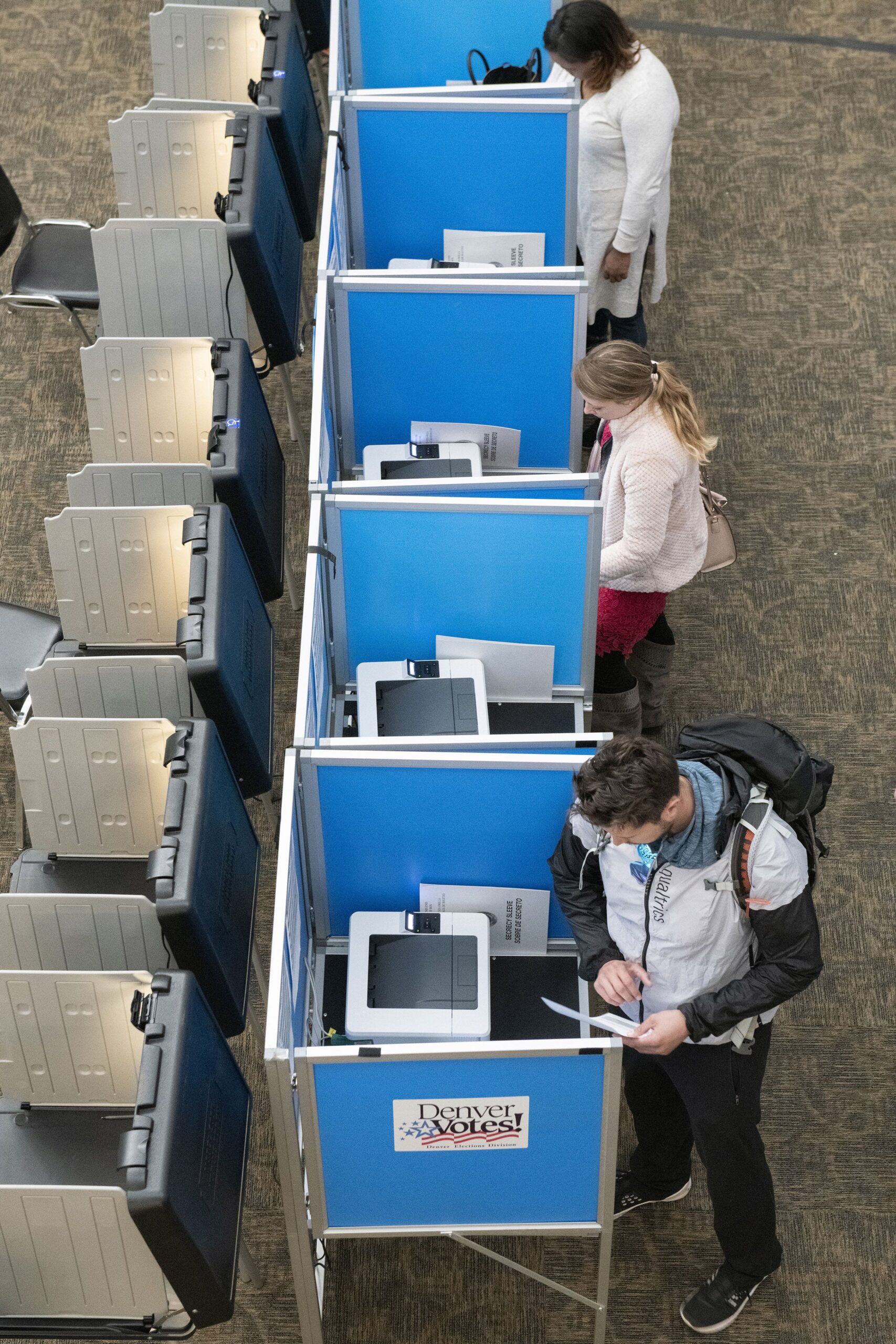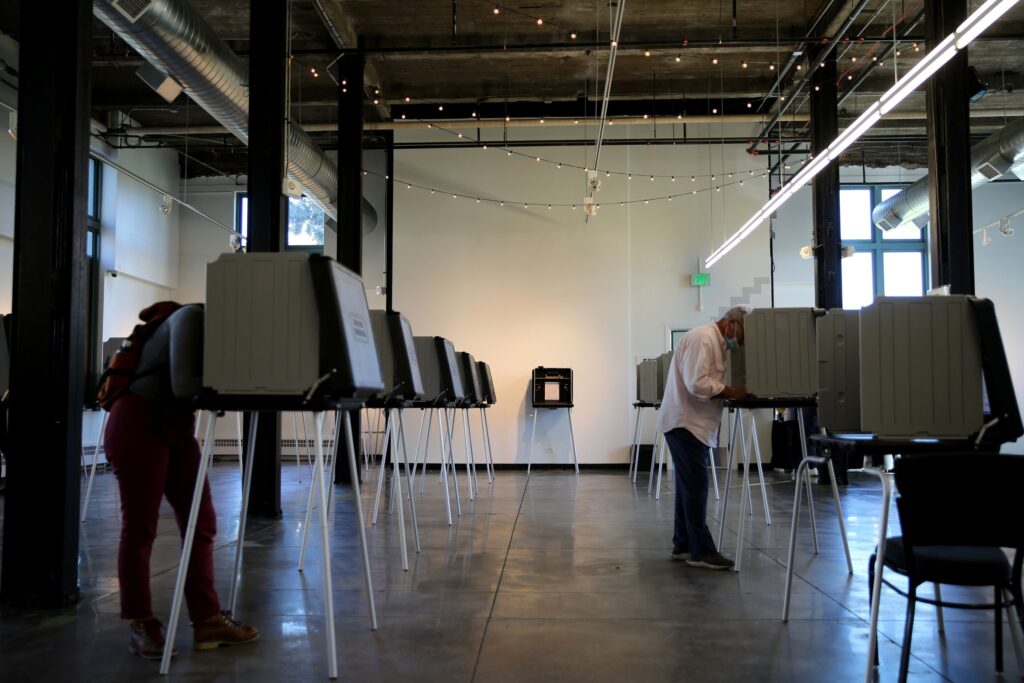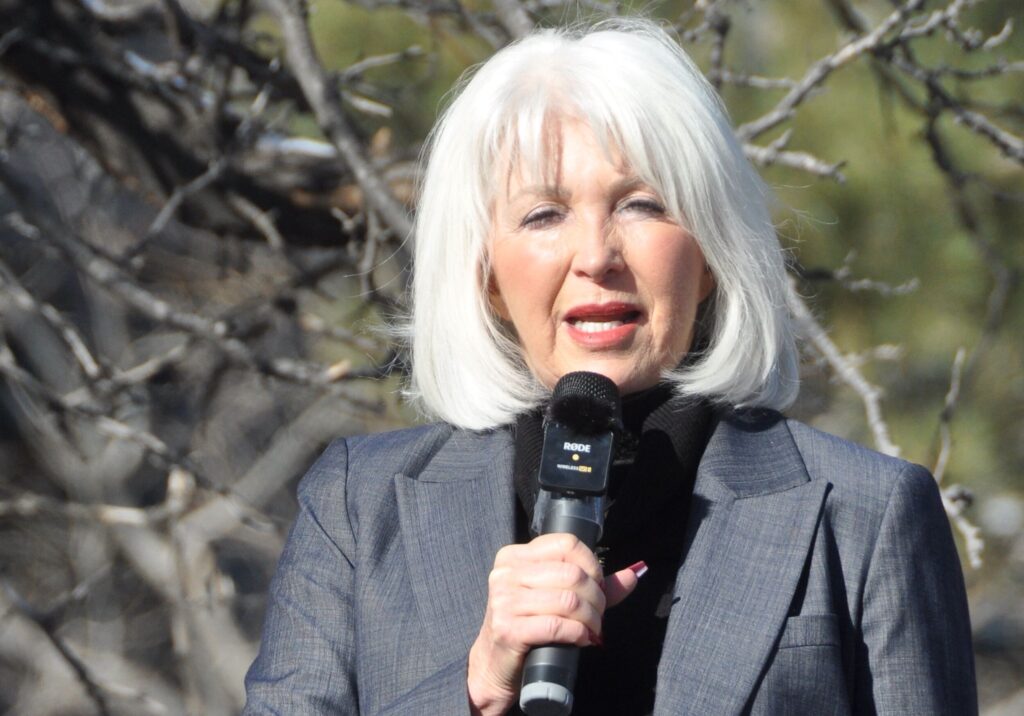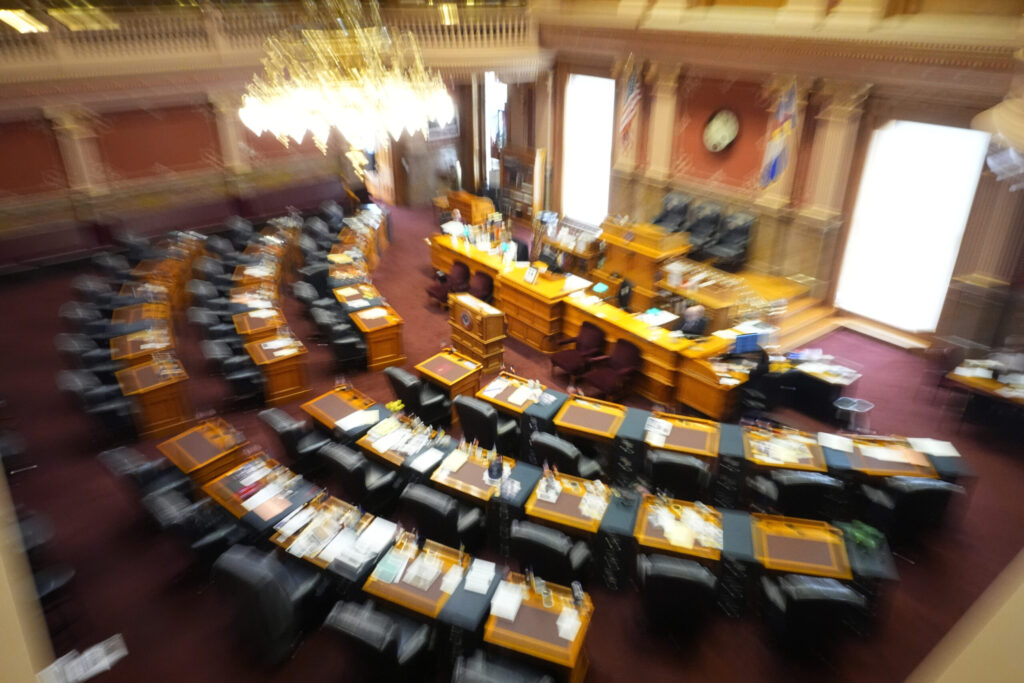The ‘people’s outlet’: How ballot initiatives shape Colorado policies

For more than a century, Colorado voters have used the ballot box not just to elect leaders but also to make laws, shaping the state’s most defining policies through citizen-led initiatives.
Those two avenues of policymaking — the first by legislators, the second by citizens — yet represent another point of tension that is inherent to America’s grand experiment in representative democracy. At times, it leads to reaction and counter-reaction, both within and outside the state Capitol.
The threat of a ballot measure, for one, can prompt legislators to act.
Indeed, some see the initiative process as a counterbalance to the Colorado legislature, serving as a check on state policymakers, at times overriding their will. Others prefer the legislative process, with its committee hearings and voting requirements that — they argue — means a proposal is rigorously vetted before it becomes law.
Many agree that the initiative process is complex and expensive — and therefore out of reach to most, except for well-oiled groups, while acknowledging it remains among the most effective ways for citizens to actually get their voices heard and directly participate in shaping policies.
In the last election, Coloradans voted on 14 statewide initiatives, including provisions enshrining the right to abortion in the state’s constitution and prohibiting bail for some instances of first-degree murder.
Although only tax-related measures are allowed on the ballot in odd-numbered years, organizers behind proposals dealing with other issues have already begun the process of gathering signatures. To qualify for next year’s ballot, each petition must collect 124,238 valid signatures by Aug. 3, 2026.
Several of those proposed measures mirror bills that failed to pass during this year’s legislative session — one, for example, seeks to repeal the state’s retail delivery fee, which Republican legislators have unsuccessfully attempted to accomplish for two years.
Another measure, sponsored by the group Advance Colorado, aims to increase penalties for the manufacturing, possession and distribution of fentanyl, closely resembling another proposal that died from last session but which also includes a provision on mandatory treatment for individuals convicted of possessing more than 1 gram of the substance.
A similar bill also failed in the Democratic-controlled legislature in 2024.
The group is also working on an initiative to mandate state and local law enforcers to work with federal agencies on immigration enforcement. Specifically, the proposal would require local authorities to cooperate with requests to notify the U.S. Department of Homeland Security about releasing inmates, and detain the latter if they are charged with a violent crime or had been convicted with a prior felony.
A similar, but broader-reaching policy proposed in the legislature failed to pass through its first committee hearing.
Michael Fields, executive director of Advance Colorado, who successfully ran several ballot initiatives in 2024 dealing with the justice system, said the “tough on crime” approach tends to do better at the ballot box than in the legislature.
“These are things that poll 70-80%, and the legislature’s saying no, so this is the people’s outlet,” he said. “Citizens want to say that we disagree with what legislators are doing, and that’s why we have the citizen initiative process.”
When asked about the “disconnect” between legislators and voters on criminal justice issues, Fields suggested it is “more political and philosophical.”
“I think they assume that because they got elected, people agree with all of their views,” he said.
That tug and pull is at display within and outside the state Capitol.
Already, the opposition to Advance Colorado’s initiatives is taking shape.
Kyle Giddings, deputy director of the Colorado Criminal Justice Reform Coalition, agrees with the approach the legislature has adopted.
He said legislators from both parties began adopting a more “reform-minded” approach in the mid-2000s and that movement received a big push following the death of George Floyd in 2020, which sparked protests nationwide. Progressive Democrats pressed for alternatives to incarceration and reduced sentences for low-level crimes, he added.
Giddings said his group is assembling a coalition to oppose the ballot measures from Advance Colorado, and he is optimistic of its chances in defeating them. He said the measures, for one, don’t “actually deal with the causes of why people do drugs.”
“It’s so important that we do better to educate folks on the alternative because the reality is that when there is harm done, the community has a right to respond to it, but there are so many things that we can be doing to address the harm, rather than just locking people up,” Giddings said.
‘The problem with a plurality’
With Democrats in control of the House, Senate, and governor’s office for the past six years, Republicans and conservative-leaning independents have become increasingly frustrated with the policies emerging from the state Capitol, said Beth Hendrix, executive director of the League of Women Voters.
Likewise, Democrats felt the same way a few decades ago, when Republicans were in control, she said.
“That’s the problem with a plurality — one side is the loser, and one side’s voice isn’t heard as strongly,” she said. “I think there have been frustrations between voters and elected officials since the United States began. We can’t deny that politics are more divisive now than they have been in the past, and that’s a shame, because the people who are hurt the most are the voters. If legislators would focus on the voters, instead of reelection campaigns, perhaps things would be different.”
That frustration has fueled a wave of ballot initiatives focused on issues unlikely to pass through the legislature.
From the conservative end of the political spectrum, those proposals have included measures related to abortion, gender surgeries and school choice.
From the progressive end, proponents have introduced measures on labor, elections and “trophy hunting.”
Sometimes, simply getting it past the Colorado Title Board sends a message to lawmakers, said Natalie Menten, a Jefferson County resident who has worked on numerous ballot initiatives over the past two decades.
“I think these things do impact the legislature and pressure them,” she said. “Look at property taxes. We wouldn’t have had that last special session without the pressure of the property tax reform measure from Advance Colorado and Colorado Concern. I went to almost all of the Property Tax Commission meetings and watched what legislators were doing. They were not gonna do what we wanted, so a citizen initiative was absolutely required.”
The job of the Title Board is to determine whether an initiative has a single subject, as well as whether the language that will appear on the ballot sufficiently represents the changes to the law.
Aly Belknap, executive director of Colorado Common Cause, said the citizen initiative process is one of the most effective ways for Coloradans to ensure their voices are heard.
“It gives all of us that direct choice in shaping laws, not just as a citizen who’s initiating something but as a citizen who actually gets to vote directly, and that can be a really important tool in states like Colorado to counterbalance the dynamics with the legislature,” she said.
Belknap agreed that ballot initiatives can be effective in sending a message to policymakers and argued that lawmakers should regard that process as a means to hear directly from their constituents through the ballot.
“I think it helps inform candidates’ campaigns when they look at their district and where they went on a particular issue, and I think that is a big part of communication between voters and elected officials,” she said. “A really great example is tax policy and how the political possibilities around creating a more progressive tax policy have been so difficult at the legislature when these issues get consistently brought to the voters.
She added: “I think it really informs the conversation.”
An expensive, time-consumer endeavor
Getting an initiative on the ballot is complicated and expensive.
It requires legal fees, advertising costs, and paying people to collect signatures.
The process can cost several million dollars. And the outcome is far from certain.
Some grassroots organizers have argued that this makes the process extremely inaccessible to everyday citizens — that only wealthy individuals and well-oiled organizations can bring their priorities to the ballot box.
Others have countered that a proposal’s ability to raise money validates its importance — an idea that gets funded by the people means it has a baseline of support.
Belknap expressed frustration with the direction the citizen initiative process has taken in recent years, but she is hopeful that things will turn around.
“It’s very clear that there’s a component that’s empowering for citizens and the direct democracy, but there’s also a reality of the amount of spending that goes into getting these issues on the ballot and getting voters to approve them,” she said.
Fields, who oversaw Unite for Colorado in 2020, agrees that changes need to be made to make the petition process more affordable.
“We should make it easier for people to get things on the ballot,” he said. “I don’t think it should cost as much as it does to get on the ballot. Instead of taking away the citizen initiative process, I would love to see it expanded and make it easier for grassroots groups to do so — because it’s very difficult to do it without resources.”
While there have not been any significant moves to dismantle the citizen initiative process, some argued that there have been attempts to make it increasingly difficult to access.
Last session, lawmakers passed House Bill 1327, which made changes to the early stages of the ballot initiative process. Under the bill, proponents who file five or more versions of the same initiative with minor modifications, a common strategy to test what language will get approved by the Title Board, are required to submit an explanation of the differences between each version, with a $1,500 fine if they failed to do so.
The bill also requires the Legislative Council to include an estimate of each initiative’s maximum impact on state or local government revenue and spending.
Supporters of the measure said it would help increase transparency and streamline the ballot initiative process. Rep. Emily Sirota, D-Denver, one of the bill’s sponsors, said more than 200 citizen initiatives were filed for the 2024 election, but only seven made it to the ballot.
“The volume that we’re seeing can clog up the process,” she said during debate on the bill. “It requires significant staffing and is fairly opaque to the general public in terms of what is going on.”
Menten, who testified at the Capitol in opposition to the bill, argued it would impose yet another roadblock on everyday citizens without deep pockets.
“It’s one more thing going after our right to initiatives,” she said. “They’ve layered deadlines on us, we’ve got affidavits, we’ve got licensing fees, and what (HB) 1327 is going to do is add fines now to groups, and we’re not talking $25 fines or something like that. They’re substantial fines. It was a completely hostile act to grassroots circulators.”













